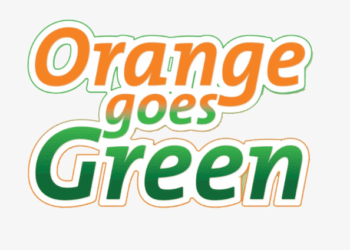Companies’ demand for labor services started the second quarter of the year on a sluggish note, suggesting that businesses are still struggling to whether the storms of the pandemic and the recent economic challenges which have been intensified by the Russia-Ukraine crisis.
According to data from the Bank of Ghana, the number of jobs advertised in selected print and online media, which gauges labour demand in the economy, declined by 1.0 percent year-on-year in April 2022 compared to the same period in 2021.
The Bank of Ghana disclosed that a total of 2,777 job adverts were recorded in April this year as compared with 2,806 for the same period in 2021.
This means that 29 more advertised jobs in the media were recorded April 2021 compared to the corresponding month of 2022. Though marginal, it suggests that businesses appetite to employ went down in April this year as the economic conditions continue to worsen.
On a month-on-month basis, the number of job vacancies in April 2022 dipped by 3.6 percent from the 2,882 jobs advertised in March 2022. Demand for labor services in the Ghanaian economy improved marginally in March 2022 compared to February which recorded a total of 2,746 job adverts.
This decline in April means the momentum of labour demand has reduced in the first month of Q2, 2022. Cumulatively, 11,029 advertised jobs were recorded for the first four months of 2022, compared with 11,646 jobs advertised during the same period in 2021.
The decline in advertised jobs in both print and electronic media by 617 in the first four months of this year, represents a 5.3 percent year-on-year decline.
Private Sector Pension Contributions
Despite the fall in labor demand in April this year, employment conditions in the Ghanaian labor market improved marginally, according to the recent labor market indicators from the Bank of Ghana.
The total number of private sector-SSNIT contributors, which partially gauges’ employment conditions, marginally improved by 1.0 percent to 861,121 (year-on-year) in March 2022, compared with 852,732 for the same period in 2021.
On a month-on-month basis, however, total number of private sector SSNIT contributors decreased by 3.0 percent from the 887,441 individuals recorded in February 2022.
Cumulatively, for the first quarter of 2022, the total number of private sector contributors increased to 2,637,883 from 2,514,756 recorded over the corresponding period in 2021, per BoG’s data.
Easing in consumer and business confidence
Meanwhile, in line with the decline in labour demand, Bank of Ghana’s consumer and business confidence surveys conducted in April 2022 showed some easing of sentiments. The Business Confidence Index eased from 88.8 in February to 85.9 in April 2022, on concerns that price pressures and currency depreciation would adversely impact industry prospects.
The Consumer Confidence Index also dipped from 87.4 in February to 81.8 in April 2022, on account of increases in fuel prices and transportation costs, as well as rising inflation.
These factors will likely impact developments within the labour market as rising cost of production and a decline in consumer spending, proxied by retail sales, will affect employment in the near-term. Data from BoG showed that retail sales declined to GH¢114.05 million in March 2022, down from the GH¢117.46 million recorded in the same period in 2021.
The Bank of Ghana stated in its recent monetary policy report that “growth prospects remain upbeat” as its high frequency indicators show continued and increased momentum in economic activity, with private sector credit showing some improvement in real terms.
However, the recent currency depreciation and the general high inflationary environment, which has resulted in higher input costs for businesses will impact production. A quick turnaround, with more confidence-building measures to counter these conditions, would provide further boost to the real economy.
READ ALSO: Unemployment: Government’s Interventions In The Past Five Years Have Been Effective- John Kumah



















